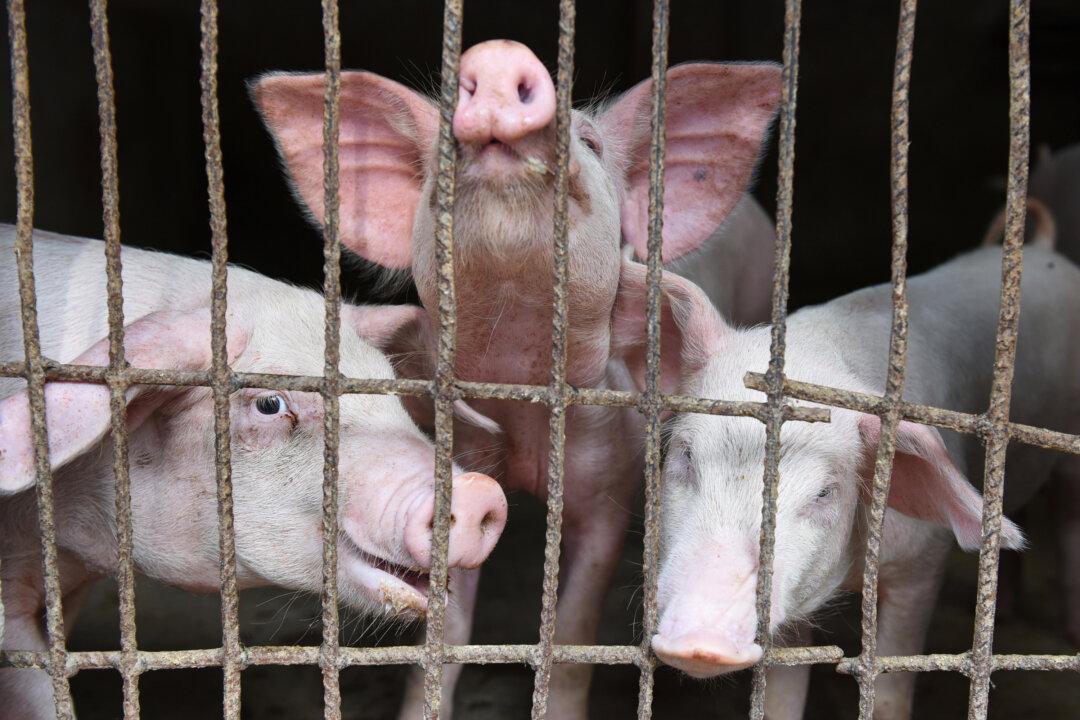BEIJING—China’s pig herd could halve by the end of 2019 from a year earlier as an epidemic of African swine fever (ASF) sweeps through the world’s top pork producer, analysts at Dutch bank Rabobank forecast on July 30.
The bank stated that China’s herd, by far the world’s biggest, was already estimated to have shrunk by 40 percent from a year ago, well above official estimates that have ranged from 15 percent to 26 percent.





